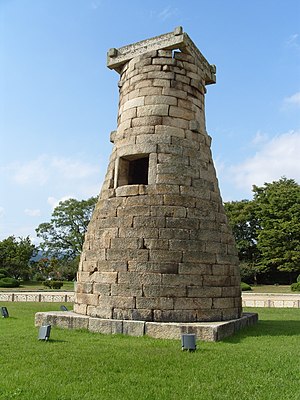647
| Millennium: | 1st millennium |
|---|---|
| Centuries: | |
| Decades: | |
| Years: |
| 647 by topic |
|---|
| Leaders |
| Categories |
| Gregorian calendar | 647 DCXLVII |
| Ab urbe condita | 1400 |
| Armenian calendar | 96 ԹՎ ՂԶ |
| Assyrian calendar | 5397 |
| Balinese saka calendar | 568–569 |
| Bengali calendar | 54 |
| Berber calendar | 1597 |
| Buddhist calendar | 1191 |
| Burmese calendar | 9 |
| Byzantine calendar | 6155–6156 |
| Chinese calendar | 丙午年 (Fire Horse) 3344 or 3137 — to — 丁未年 (Fire Goat) 3345 or 3138 |
| Coptic calendar | 363–364 |
| Discordian calendar | 1813 |
| Ethiopian calendar | 639–640 |
| Hebrew calendar | 4407–4408 |
| Hindu calendars | |
| - Vikram Samvat | 703–704 |
| - Shaka Samvat | 568–569 |
| - Kali Yuga | 3747–3748 |
| Holocene calendar | 10647 |
| Iranian calendar | 25–26 |
| Islamic calendar | 26–27 |
| Japanese calendar | Taika 3 (大化3年) |
| Javanese calendar | 538–539 |
| Julian calendar | 647 DCXLVII |
| Korean calendar | 2980 |
| Minguo calendar | 1265 before ROC 民前1265年 |
| Nanakshahi calendar | −821 |
| Seleucid era | 958/959 AG |
| Thai solar calendar | 1189–1190 |
| Tibetan calendar | 阳火马年 (male Fire-Horse) 773 or 392 or −380 — to — 阴火羊年 (female Fire-Goat) 774 or 393 or −379 |

Year 647 (DCXLVII) was a common year starting on Monday (link will display the full calendar) of the Julian calendar. The denomination 647 for this year has been used since the early medieval period, when the Anno Domini calendar era became the prevalent method in Europe for naming years.
Events[edit]
By place[edit]
Byzantine Empire[edit]
- Arab–Byzantine War: An Arab army (20,000 men) under Abdullah ibn Sa'ad invades the Byzantine Exarchate of Africa. It conquers Tripolitania and the city of Sufetula, 150 miles (240 km) south of Carthage.
- Self-proclaimed emperor Gregory the Patrician is killed during the Arab invasion at Sufetula. Africa returns to imperial allegiance after his death, but the foundation of Byzantine rule is fatally undermined.
Asia[edit]
- Emperor Taizong of the Tang dynasty sends a Chinese mission to study Indian techniques of sugar manufacturing, at Bihar in the Ganges Valley.[1]
- Taizong establishes a Chinese military government to pacify the former territory of Xueyantuo, which extends to the Altai Mountains in the west.
- Emperor Harsha, ruler of northern India, dies after a 41-year reign. His kingdom disintegrates into smaller states.
- Jindeok becomes queen of the Korean kingdom of Silla after the death of Queen Seondeok.[2]
By topic[edit]
Astronomy and science[edit]
- A stone tower astronomical observatory (named Cheomseongdae) at Gyeongju is constructed in Silla (South Korea) around this time.
Religion[edit]
- Hilda of Whitby, age 33, is persuaded by Aidan, bishop of Lindisfarne, to enter the monastic life at Hartlepool Abbey (Northumbria).
Births[edit]
- Al-Abbas ibn Ali, Muslim martyr (d. 680)
- Itzamnaaj B'alam II, ruler of Yaxchilan (d. 742)
Deaths[edit]
- Æthelburh of Kent, queen of Northumbria
- Felix of Burgundy, bishop of Dunwich (or 648)
- Gao Shilian, chancellor of the Tang dynasty (b. 576)
- Gregory the Patrician, Exarch of Africa
- Harsha, emperor of Harsha (India)
- Li Baiyao, Chinese official and historian (b. 564)
- Seondeok, queen of Silla (Korea)[2]
- Xiao Yu, prince of the Liang dynasty (b. 574)
- Yang Shidao, chancellor of the Tang dynasty
References[edit]
- ^ Kieschnick, John (2003). "The Impact of Buddhism on Chinese Material Culture". Princeton University Press, p. 258. ISBN 0-691-09676-7
- ^ a b "List of Rulers of Korea". www.metmuseum.org. Retrieved April 21, 2019.
